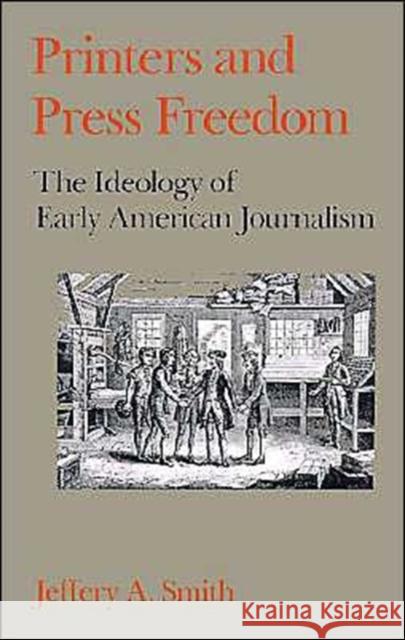Printers and Press Freedom: The Ideology of Early American Journalism » książka
Printers and Press Freedom: The Ideology of Early American Journalism
ISBN-13: 9780195064735 / Angielski / Miękka / 1990 / 248 str.
In the United States, the press has sometimes been described as an unoffical fourth branch of government, a branch that serves as a check on the other three and provides the information necessary for a democracy to function. Freedom of the press--guaranteed but not defined by the First Amendment of the Constitution--can be fully understood only when examined in the context of the political and intellectual experiences of 18th-century America. Here, Jeffery A. Smith explores how Madison, Franklin, Jefferson, and their contemporaries came to see liberty of the press as a natural and vital part of a democratic republic. Drawing on sources ranging from political philosophers to court records and newspaper essayists, Printers and Press Freedom traces the development of a widespread conception of the press as necessarily exempt from all government restrictions, but still liable for the defamation of individuals. Smith carefully analyzes libertarian press theory and practice in the context of republican ideology and Enlightenment thought--paying particular attention to the cases of Benjamin Franklin and his relatives and associates in the printing business--and concludes that the generation that produced the First Amendment believed that government should not be trusted and that the press needed the broadest possible protection in order to serve as a check on the misuse of power.











